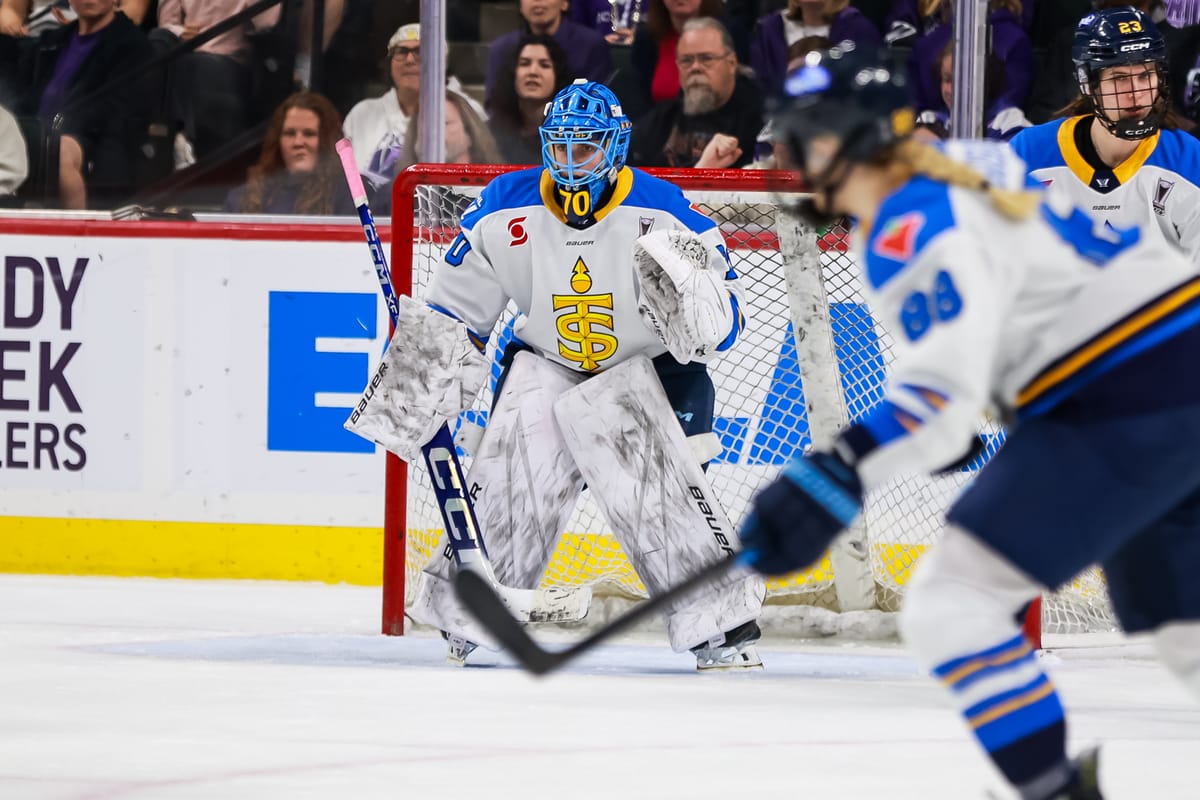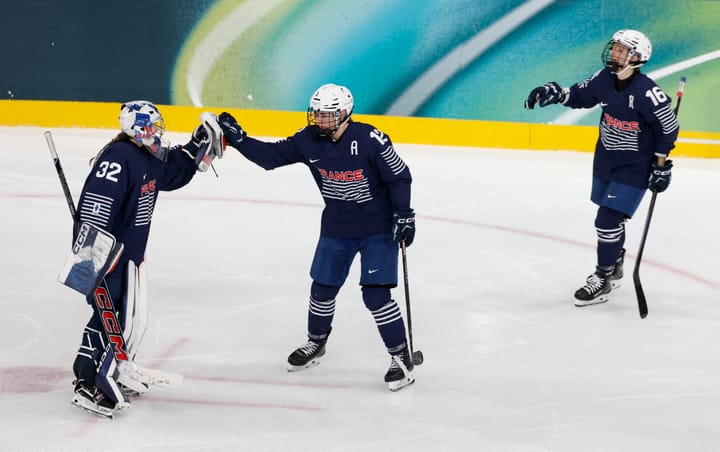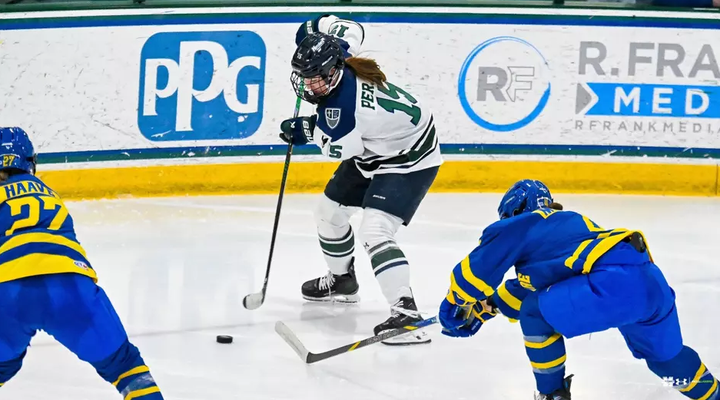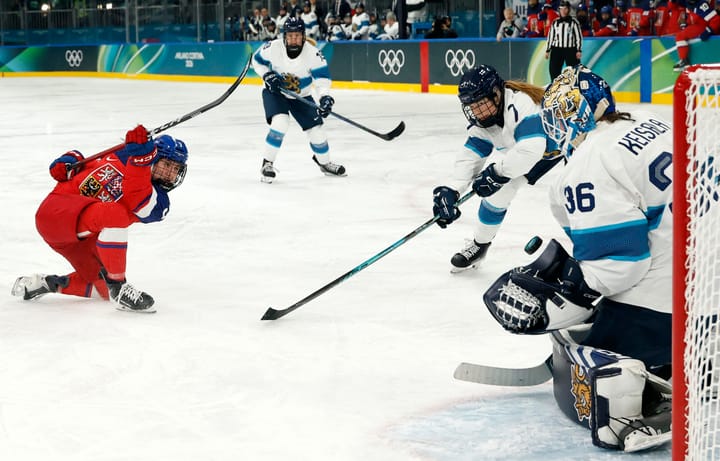2025 Toronto Sceptres Season Recap: Close, But Not Enough
After losing in the semifinals in their inaugural season, the PWHL's Toronto Sceptres had high hopes for their sophomore year. It didn't end how they'd hoped.

After losing in the semifinals in their inaugural season, the PWHL's Toronto Sceptres had high hopes for their sophomore year. Following a strong regular season showing, however, the postseason ended early with another semifinal elimination.
Team Record
The Sceptres went 15-9-6 during the regular season and finished second overall in the league. Their 48 points were surpassed only by the Montréal Victoire, who had 53 points and secured first place and the right to choose their semifinal opponent. Ultimately, both teams had 12 regulation wins, but one extra regulation loss and a few overtime decisions meant the difference.
The Sceptres faced the Minnesota Frost in their semifinal matchup, dropping the series in four games. Toronto won the first game of the series 3-2, but Minnesota would score 16 goals in the next three games to take it and move on, eventually winning the Walter Cup for the second consecutive season.
Forward Daryl Watts was the team's leading scorer, with 27 points in 30 games, including a team-high 12 goals. Defender Renata Fast led the Sceptres with 16 assists, including 11 on the power play. The Sceptres finished the season with a zero goal differential, scoring and allowing exactly 73 goals; Fast is a finalist for the league's Defender of the Year award.
Kristen Campbell played the lion's share in net, appearing in over 1200 minutes of ice time. She finished the season with a 2.25 GAA and .910 save percentage with a 9-8-3-1 record. Rookie Raygan Kirk also appeared in 10 games with a 2.26 GAA and .917 save percentage. Carly Jackson won her lone game of the season, a 2-1 overtime win over the New York Sirens.
Top Rookie
The aforementioned Raygan Kirk gets my vote for the Sceptres' top rookie. She appeared in 10 games over the first few months of the season, winning five of them. In eight of 10 appearances, she allowed two or fewer goals against.
Goaltender Raygan Kirk backstopped @PWHL_Toronto to victory yesterday, making 26 saves in her first professional win. ✅
— PWHL (@thepwhlofficial) December 28, 2024
Here are a few of the highlights 🎥 pic.twitter.com/K1lgeSRedk
Overall, yes, it's a small sample size, but Kirk looked like a perfectly serviceable backup for the Sceptres. Unfortunately, her rookie season ended short when she was placed on long-term injured reserve retroactive to March 30 with a lower-body injury.
MVP
Can I make this a tie? Both Daryl Watts and Hannah Miller were key contributors to the Sceptres' offense this season, and both saw sizeable increases in their output over the inaugural PWHL season.
TORONTO ANSWERS!
— Jocks In Jills (@JocksInJills) May 11, 2025
Daryl Watts makes it 3-1 in Minnesota. pic.twitter.com/jxp4mArZbb
As I already mentioned, Watts had 27 points this season, up from 17 last season. Miller recorded 24 points, including 10 goals, up from 14 points last season. They were the top scorers in both goals and points for the Sceptres, and accounted for just over 30 percent of the team's goals during the regular season.
What Worked
The Sceptres' power play was the best in the PWHL this season, capitalizing on 25.8 percent of opportunities (24/93). They were by far the best team on the advantage; comparatively, the New York Sirens were second at 18.5 percent (20/108). The team's overall power play unit was strong, and they were the only team in the league to not allow a shorthanded goal.
It's also a sizable improvement from last season, when Toronto's power play was only fourth-best in the PWHL and capitalized on just 15.7 percent of chances.
What Didn’t
The Sceptres struggled quite a bit on the road this season. When they were away from Coca-Cola Coliseum, the team won just six of 15 games. They had the second-worst road record in the league, ahead of only the Boston Fleet.
Toronto went 6-6-3 on the road, a far cry from last season when the team went 8-4-0 away from home and had the best road record in the PWHL. They've got to find ways to build off their home momentum and carry the energy they get from the crowds on the road.
Editor's note: The original version of this piece incorrectly stated that Toronto lost in the Walter Cup finals. Boston lost in the Walter Cup finals, and Toronto lost in the semifinals.





Comments ()